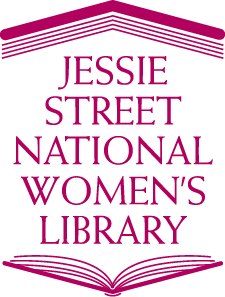Tapestry series no. 34
Contributed by Elizabeth Sutter
I was only five years old when my father died and mother and I returned from Western Australia to live with my Granny — my second Mother — whom I class as a pioneer woman.
Elizabeth’s Scottish parents with two older children were travelling in a dray from Horsham and camped by the river at Avoca. That night, 3rd December 1853 daughter Elizabeth arrived and is reputed to have been the first white baby born in Avoca. Next night they moved on and my Great Grandmother said that she had left her shawl hanging on a tree. Great-grandfather said it was too far to go back and decided that aborigines would make use of it. They settled in Talbot to try their luck on the gold fields.
They lived in a small stone cottage in the Back Creek area which was at the centre of the gold mining activity and my Granny often told me stories of her childhood. Her mother could make a scone as big as a cartwheel, in the brick camp oven, and with sisters and brothers she loved to sneak into the cemetery after a Chinese funeral to eat rice biscuits left for the spirits.
Probably while delivering groceries in the spring cart, Stephen Astbury first took notice of Elizabeth who lived just the other side of Back Creek. They were married in Talbot by Rev. John Nicol on 15th August 1874 and bought a cottage on Back Creek where the first of their children was born.
Between 1880-1882 they moved to Moyreisk South where Stephen took up land. His poor health made farming difficult and he died on 14th April 1905. Only the eldest daughter was married and the two sons had gone to work on timber in Western Australia. The teenage sons had to carry on the farm. Granny told me how concerned she was that they only had a pot of porridge (home crushed grain) for their meal after a hard day’s ploughing with the horse teams. My mother was always interested in their reports on outings to woolshed dances, sports meetings, travelling long distances by spring cart.
Although untrained. Granny delivered most of the babies around the district. It would mean at least a ten-mile round trip to find and alert the doctor, and then he had to either come on horseback or horseback vehicle. It was reported that he was not concerned about being late if Gran Astbury was in attendance. Quite often the baby was delivered before the doctor arrived.
My Gran was very fond of children and a lasting picture for me is how loving she nursed a baby, whether it was a child of a relative or a child of a friend or neighbour. Small children were entertained with a tea party and games she played with them. ‘This wee good dog to Dover’ and ‘ Rig Dam Babby Diddle Caro” made her a firm favourite. For miles around the district she was known as Gran Astbury.
We often sat together on a sofa on the front of the veranda of the small house at Natte Yallock, where she spent the latter years of the life and it wax there she taught me to crochet and took an interest in my Sunday School work. Making articles for the Children’s Dip, or Fish Pond, held at the Church Fete, took up a lot of her time. She was a very regular church goer,” honesty and truthfulness” being her motto. There was a scolding for wrong doing but always a pat of the head for telling the truth.
The visiting preacher often came for a meal and I can see him at the open fire making toast with homemade bread while Granny boiled some eggs. A plum pudding was always a favourite when we had a family gathering. That pudding had to always contain a freshly grated carrot. There were always home made jams and sauces. As well as pats of freshly churned butter. Visitors were always welcome.
By 1944, When my Granny was in her 91st year, her memory was fading and she often mentioned friends from younger days and expressed the wish to visit her mother, “I haven’t seen Mother for weeks’.
The night just before she “passed over the range’ with many pauses to gather breath she recited the 23rd Psalm. We laid her to rest in the Natte Yallock cemetery.
Is it any wonder that I have such fond memories of my dear Granny?
Just recently I presented a framed photograph of this pioneer woman, Elizabeth Astbury, to the Avoca Historical Society.

